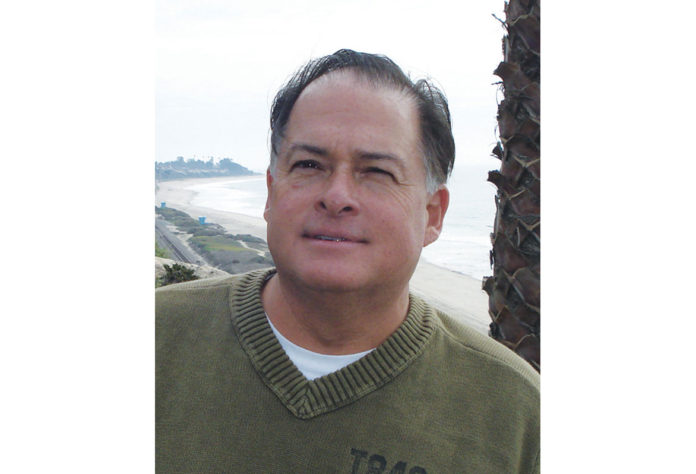by David Vialpando
The recent prevalence of organized criminal action, fraud, scams, and illicit intrusions targeting tribal casinos across the country has given rise to the need to stay one or two steps ahead of those who would wantonly victimize gaming establishments, casino patrons, and employees. Thankfully, rapid access to information and the collaborative nature of the tribal gaming industry facilitates the design and implementation of protective measures designed to ensure the safety of people and the protection of tribal assets. The formation of a Casino Safety Board is one strategy employed to accomplish this goal.
Since the first gaming establishment, Casinơ di Venezia, opened in Italy in 1638, criminals have conspired to steal, cheat, embezzle, and otherwise pillage casino assets. The modern version of thievery frequently involves leveraging technology to perpetrate their crimes.
The most recent iteration of technology-facilitated crime are the millions of dollars stolen from commercial and tribal casinos across the U.S. through criminals impersonating high-ranking casino executives or tribal leadership via telephone, text messages, and fraudulent emails targeting cash cage personnel or those with access to casino funds. The duped casino employee is tricked into removing thousands of dollars from the casino and delivering the money to people in waiting vehicles frequently at gas stations. Before you ask yourself, “Who would ever fall for such a blatant scam?” please know that these criminals have developed a well-honed script, perpetrate thousands of attempts every day, and only need to connect with one vulnerable unwitting casino co-conspirator to be successful. The numerous successful crimes and millions lost speak to the effectiveness of this scam.
Other technology-perpetrated crime, such as phishing scams, scareware, tech support scams, and ransomware, have been successful in stealing millions of dollars from casinos. Organized crime groups, such as drug and human trafficking cartels, while arguably infrequent, continue to exploit tribal casinos for their illicit commercial benefit.
The rapid access to news media information regarding these crimes, coupled with the collegial information gathering and sharing available through tribal gaming and public safety organizations like the National Indian Gaming Commission, Cybersecurity & Infrastructure Security Agency, Pechanga.net, Tribal Gaming Protection Network, and the many casino gaming industry associations across the country, provide the means to prepare for the inevitable attacks and misdeeds.
One such strategy is the formation of a Casino Safety Board. While such an entity may serve many purposes, the main focus should be on the following:
- Analyzing crime trends, publicized incidents, and government advisories impacting gaming establishments
- Assessing casino vulnerabilities to current crime trends and evaluating detection and intervention systems, including IT infrastructure
- Recommending protection strategies, policy and procedures changes, enhanced security protocols, training and information dissemination
- Implementing proactive initiatives designed to enhance safety (i.e., see something, say something)
The true value and effectiveness of a Casino Safety Board is bringing together a core group of subject matter experts at the highest levels of their respective agencies and departments to discuss threats to public safety and assets and recommend an appropriate response. Members of the Casino Safety Board should include:
- Casino Vice President of Operations
- Casino Security Director or Manager
- Casino Risk Manager
- Casino IT Director or Manager
- Casino/Gaming Commission Surveillance Director
- Gaming Commission Executive Director
- Tribal Police Chief or Local Law Enforcement Command Staff Representative
- Tribal Administrator or Designee
Casino Safety Board meetings should be scheduled monthly, but no less frequently than quarterly, with the caveat that any board member can call for an immediate meeting should the need arise.
In addition to discussing safety threats impacting the casino and other gaming establishments across the country, Safety Board meetings are an excellent opportunity for law enforcement to discuss community public safety initiatives potentially impacting the casino, such as drug trafficking investigations, criminal street gang activity, or regional human trafficking operations. Casino Safety Board meetings provide an opportunity for post-meeting spinoff discussions regarding issues or initiatives involving a limited number of members, such as a table games risk pertinent to operations, surveillance, and the gaming commission.
The working relationships and partnerships formed through the Casino Safety Board can reap benefits in other areas of the tribal gaming industry and tribal communities in general. Board members can leverage these relationships when called upon to conduct presentations on casino safety and asset protection at industry conferences or community safety and crime prevention at tribal gatherings. Coordination of public safety, casino security, surveillance, and tribal gaming regulatory agency resources in board initiatives lay the foundation for effective coordination of day-to-day casino safety tasks and risk mitigation, such as gaming cheats, embezzlers, apprehension of persons wanted by law enforcement, and even critical incident response.
With casinos generating billions of dollars in revenue and catering to millions of patrons each year, the industry is attractive to a wide variety of criminals and those intent on perpetrating evil acts with tragic consequences. A Casino Safety Board can serve as a coordinated body of experts dedicated to ensuring the protection of tribal assets and the safety of casino patrons and employees.
David Vialpando is Executive Director of the Pala Gaming Commission and Vice-Chairman of Tribal Gaming Protection Network. He can be reached by calling (760) 510-4559 or email [email protected].















































